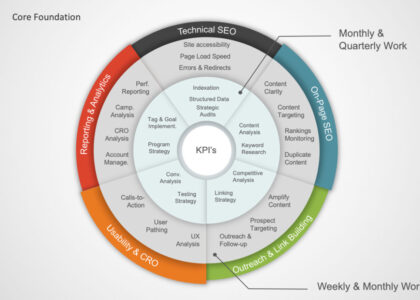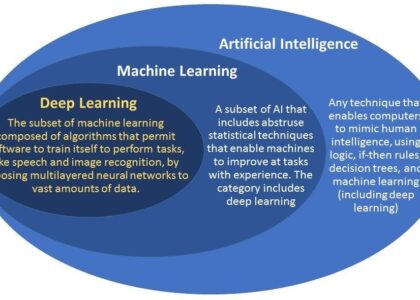The Importance of Research and Data Analysis
Research and data analysis play a crucial role in various fields, from scientific research to business decision-making. By collecting, interpreting, and drawing insights from data, researchers and analysts can make informed decisions, identify trends, and solve complex problems.
Research Process
Research involves systematic investigation to discover new knowledge or validate existing theories. Researchers formulate hypotheses, design experiments or studies, collect data through various methods such as surveys or observations, and analyse the results. This process helps in generating evidence-based conclusions.
Data Analysis Techniques
Data analysis involves examining raw data to extract useful information. There are various techniques used for data analysis, including descriptive statistics to summarise data, inferential statistics to make predictions based on sample data, and advanced methods such as regression analysis or machine learning for predictive modelling.
Applications in Business
In the business world, research and data analysis are essential for making strategic decisions. By analysing market trends, consumer behaviour, and financial performance, businesses can identify opportunities for growth, optimise operations, and enhance customer satisfaction. Data-driven insights enable companies to stay competitive in a rapidly evolving market.
Challenges and Benefits
While research and data analysis offer valuable insights, they also come with challenges such as ensuring data accuracy, dealing with large datasets (big data), and interpreting results effectively. However, the benefits of rigorous research and thorough data analysis outweigh the challenges by providing actionable information that leads to improved outcomes.
Conclusion
In conclusion, research and data analysis are indispensable tools for gaining a deeper understanding of complex phenomena and making informed decisions across various domains. By harnessing the power of research methodologies and analytical techniques, individuals and organisations can unlock valuable insights that drive progress and innovation.
Eight Essential Tips for Effective Research and Data Analysis
- Clearly define your research question or hypothesis before starting.
- Ensure your data is reliable and of good quality.
- Use appropriate statistical methods to analyse your data.
- Document all steps of your research process for reproducibility.
- Consider potential biases in your data and address them accordingly.
- Visualise your data effectively to communicate findings clearly.
- Seek feedback from peers or experts to improve the quality of your analysis.
- Stay organised and manage your time effectively throughout the research process.
Clearly define your research question or hypothesis before starting.
It is essential to clearly define your research question or hypothesis before embarking on any research or data analysis project. By establishing a clear objective from the outset, you can focus your efforts, streamline your data collection process, and ensure that your analysis is targeted towards answering specific queries. A well-defined research question or hypothesis serves as a roadmap, guiding you through the research process and helping you stay on track to achieve meaningful and actionable results.
Ensure your data is reliable and of good quality.
Ensuring that your data is reliable and of good quality is paramount in conducting effective research and data analysis. Reliable data forms the foundation upon which accurate insights and conclusions are built. By verifying the accuracy, consistency, and relevance of your data sources, you can enhance the credibility of your findings and make informed decisions based on trustworthy information. Quality data not only minimises errors but also maximises the value of your analysis, leading to more robust outcomes and actionable recommendations. Prioritising data reliability and quality assurance is key to unlocking the full potential of research and data analysis processes.
Use appropriate statistical methods to analyse your data.
Using appropriate statistical methods to analyse your data is essential in ensuring the accuracy and reliability of your research findings. By selecting the right statistical techniques based on the nature of your data and research objectives, you can uncover meaningful patterns, relationships, and trends that provide valuable insights. Whether you are conducting hypothesis testing, regression analysis, or data mining, choosing the correct statistical methods helps to draw robust conclusions and make informed decisions based on sound evidence. Proper statistical analysis enhances the credibility of your research outcomes and strengthens the validity of your study findings.
Document all steps of your research process for reproducibility.
Documenting all steps of your research process is essential for ensuring reproducibility and transparency in data analysis. By meticulously recording the methods, procedures, and tools used throughout the research journey, you not only facilitate the replication of your results by others but also enhance the credibility and reliability of your findings. Comprehensive documentation enables researchers to trace back each step, identify potential errors or biases, and validate the integrity of the data analysis process. Embracing this practice not only promotes good research practices but also contributes to advancing knowledge in a systematic and accountable manner.
Consider potential biases in your data and address them accordingly.
When conducting research and data analysis, it is crucial to consider potential biases that may exist in the data and take appropriate steps to address them. Biases can skew results and lead to inaccurate conclusions, undermining the validity of the findings. By being aware of possible biases, such as selection bias or confirmation bias, researchers can implement strategies to mitigate their impact, such as using diverse data sources, applying statistical techniques to adjust for biases, or conducting sensitivity analyses. Addressing biases ensures that the analysis is more robust and reliable, ultimately leading to more accurate and trustworthy outcomes.
Visualise your data effectively to communicate findings clearly.
Visualising data effectively is a crucial tip in research and data analysis as it helps communicate findings clearly and concisely. By using graphs, charts, and other visual representations, complex datasets can be transformed into easily digestible insights. Visualisation not only enhances the presentation of results but also allows for better interpretation and understanding of trends, patterns, and relationships within the data. Clear and informative visualisations can significantly improve communication of research findings to stakeholders, enabling informed decision-making based on compelling evidence.
Seek feedback from peers or experts to improve the quality of your analysis.
Seeking feedback from peers or experts is a valuable tip in research and data analysis. By involving others in the review process, you can gain fresh perspectives, identify potential blind spots, and ensure the accuracy and robustness of your analysis. Constructive feedback not only helps in refining your methodology and interpretation of results but also fosters collaboration and continuous improvement. Engaging with peers or experts allows you to tap into diverse expertise and enhance the overall quality of your research output.
Stay organised and manage your time effectively throughout the research process.
Staying organised and managing time effectively are essential aspects of the research and data analysis process. By maintaining a structured approach and setting clear timelines for each stage of the research, researchers can ensure that tasks are completed efficiently and deadlines are met. Effective time management allows for thorough data collection, analysis, and interpretation without feeling overwhelmed or rushed. By staying organised, researchers can maintain focus, track progress, and ultimately produce high-quality results that contribute to valuable insights and informed decision-making.






